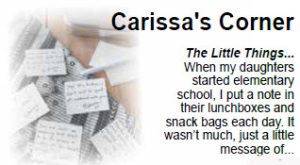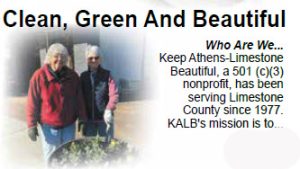The news is replete with stories of unexpected drop-offs of migrants in small towns. Alabama towns like Sylacauga, Alabama, where my granddaddy grew up. Albertville, just up the way on Sand Mountain. Salt-of-the-earth places where Friday night football means Monday bragging rights, the local VFW still holds community cookouts, and the Methodists always beat the Baptists to the restaurant on Sunday after church.
Good folks, real folks. Insecure in their own communities.
They’re not bad people. They have a heart for the poor and downtrodden. These are folks who would give the shirt off their backs and bring a meal to a sick neighbor.
Their sudden insecurity stems from being forced to be benevolent. Forced by their government, against their will, to expend resources. That’s not how benevolence works. That’s how benevolence dies.
In essence, the government can legally make you give. But just because it can, does not mean that it should.
A Chinese philosopher once said, “Benevolence is one of the distinguishing characteristics of man.” We’re reminded in the book of James, “[R]eligion that God our Father accepts as pure and faultless is this: to look after orphans and widows in their distress…” (James 1:27 NIV) Caring for others is a part of what makes a well-ordered society function. But Auburn University Professor Emeritus Tibor Machen once wisely said, “Generosity is a moral virtue that cannot flourish in a welfare state or in any sort of command economy, because to be generous is to voluntarily help others in certain ways. It will flourish in a free society.” Machen went on to say, “…if generous behavior were not freely chosen, but instead coerced by law, its moral import would vanish…it would cease to be generous.”
When the government forces communities to act benevolently, then goodness gives way to compulsion. “You will give, or else! You will give now, or be deemed a racist! We have ways of making you give!”
Let’s be clear. There is a vast difference between someone who gives from the heart, and someone from whom much is taken.
You may have a beautiful home that you freely share with others. Something for which you had worked for many years, and being one who is blessed you decide to bless others. Imagine one day you woke to the sound of unknown, unannounced, uninvited people making use of your home. No warning of their arrival. No care or concern for your security. Your hard-earned possessions are being used, your food eaten, your clothes worn by others, your clean house trampled. Strangers keep arriving on your doorstep and walking in the door because someone, somewhere, somehow, with a position in government, told them they could do so.
Just like that, you no longer feel peaceful in your own home. You have no ill will toward others. Yet now you feel abused and unsafe in your own home. You question whether life will ever be the same.
Let the feelings of that analogous story sink in.
How would you feel?
What would you do?
 What I just described is a micro-version of life in cities and towns all over America. What if the house represented a whole community, or a state? What if the house in that story was an analogy for our country? The abuse of our home, wearing of our clothes, and the eating of our food? That’s apersonalized version of what is happening to the resources of America right now as unchecked mass migration takes on dangerous levels. In recent days, small-town Alabama joined big-city America in struggling to understand and accommodate huge numbers of Biden/Harris migrants they didn’t know were coming.
What I just described is a micro-version of life in cities and towns all over America. What if the house represented a whole community, or a state? What if the house in that story was an analogy for our country? The abuse of our home, wearing of our clothes, and the eating of our food? That’s apersonalized version of what is happening to the resources of America right now as unchecked mass migration takes on dangerous levels. In recent days, small-town Alabama joined big-city America in struggling to understand and accommodate huge numbers of Biden/Harris migrants they didn’t know were coming.
It’s one thing to be benevolent; it’s quite another to be forced to be benevolent. Towns like Springfield, Ohio, are adding a third more residents to their small community. Waves of third-world humanity are being flown into the country by the Biden/Harris administration and simply dropped off. New York City initiated a plan to pay illegal immigrants up to $4000 to move out of the migrant shelters because the Big Apple can’t sustain the decay. Recent reports from the NYPD indicate that 75% of all crime in Manhattan is being committed by illegal immigrants. Aurora, Colorado, has Venezuelan gangs taking over whole apartment complexes and terrorizing citizens. The Federation for American Immigration Reform reports that English as a second language now costs American school systems up to $60 billion per year. The state of Texas has spent over $11 billion trying to stem the tide of mass illegal immigration at its border.
Our house is in disarray.
It becomes nigh unto impossible to be benevolent when your resources are stripped away. Benevolence cannot be forced.
Progressives mock and deride good people for expressing their concerns. “We are privileged and must be benevolent,” they say.
Let’s recall who we are. The United States has never been exclusive of others. This is the most generous country on the earth…perhaps in all of history. We provide aid, we extend hospitality, and we have always done so willingly because that is who we are. It is something to be proud of.
But our generosity is being abused. In the storyline I wove about the house, the homeowner’s generosity was no longer able to be extended to others when his resources were voraciously and unexpectedly consumed.
A giving heart is a thing of God. But when the giver is commanded to give, he loses the ability, and even the desire, to give. Benevolence cannot be forced. It is a “want-to” thing, not a “forced-to” thing.
We must restore order so we can continue to be a blessing to others. We cannot be forced into benevolence. That’s not how this works.
By: Phil Williams






